August 28–November 3, 2013
Arcadia University Art Gallery
Adapted for Arcadia from an exhibition originally presented at Blum & Poe in Los Angeles last summer (“No Person May Carry a Fish into a Bar”), this evolving traveling show, co-curated by Julian Hoeber and Alix Lamber, continues their investigation into the nature of crime and its relationship to art making.
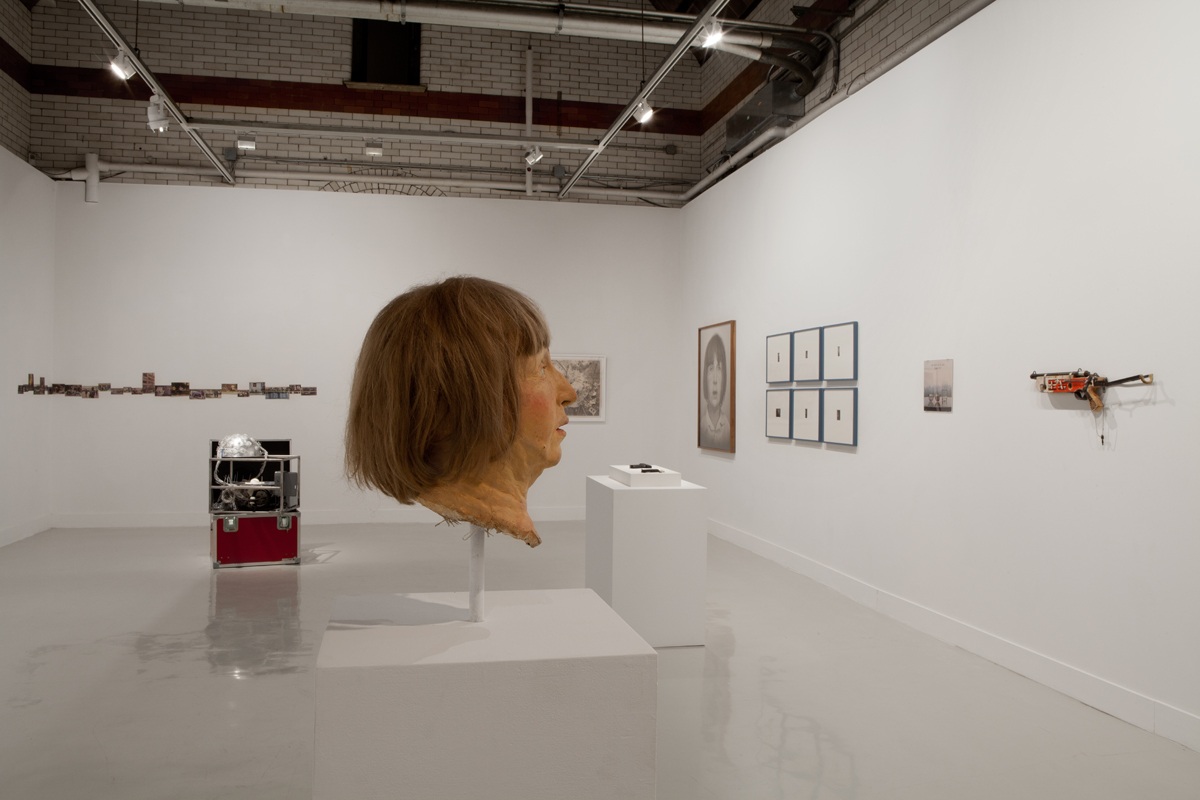
Instalation View, "No Bingo for Felons", Arcadia University Art Gallery, photo: Greenhouse Media
In the spirit of the obsolete L.A. law that gave the original exhibition its name, No Bingo for Felons refers to an unusual regulation still on the books in Southeastern Pennsylvania and points to definitions of criminal behavior as sometimes absurd, other times poetic, and occasionally humorous. Including traditionally understood artworks as well as objects and images that result from either committing or solving crimes—and sometimes both—the exhibition at Arcadia alludes more specifically to violent urban crime. Read the co-curators’ original proposal for the show (PDF).
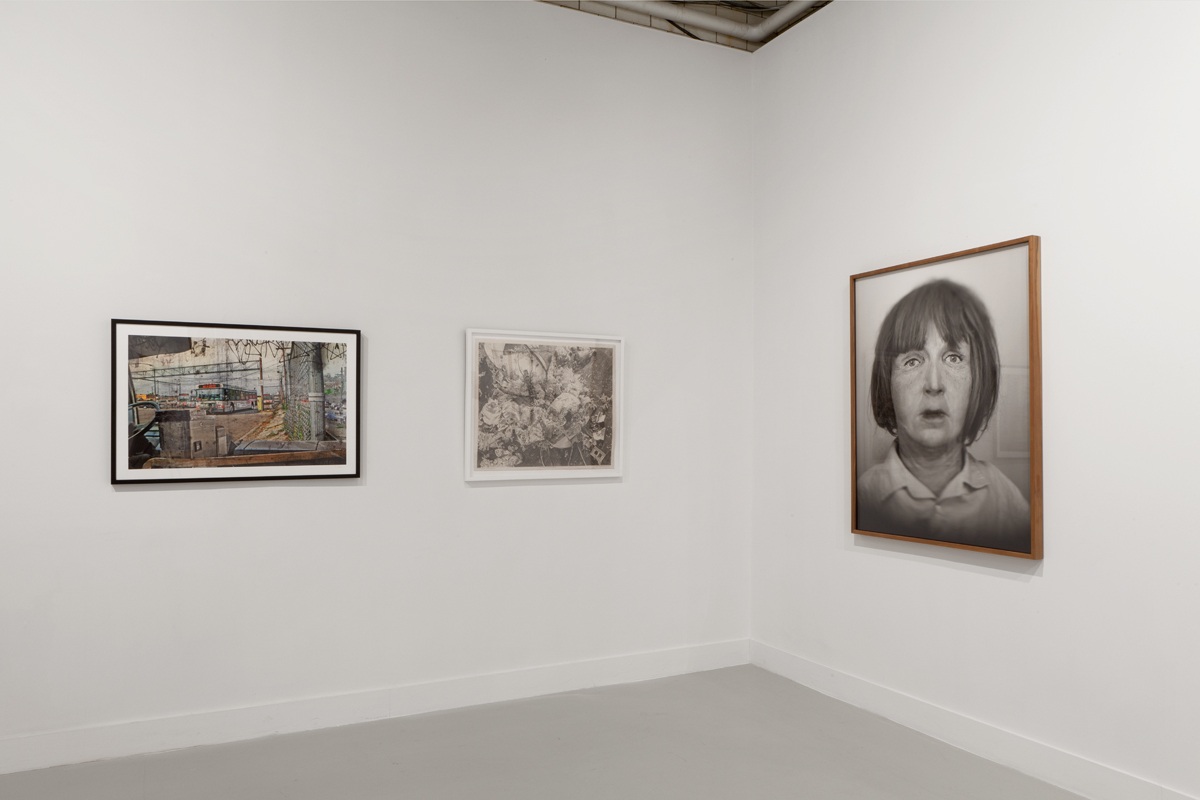
Instalation View, "No Bingo for Felons", Arcadia University Art Gallery, photo: Greenhouse Media
The exhibition contains works by Frank Bender, Jennifer Bolande, Mel Chin, Honoré Daumier, John Divola, Alyse Emdur, Gregory Green, Vic Henderson, Suzanne Lacy, Damon Locks, Kori Newkirk, Yoshua Okón, Yoko Ono, Kelly Poe, Tom Sachs, Dread Scott, Dirk Skreber, Zoe Strauss, Arne Svenson, and anonymous photographs from the collection of Luc Sante.
ABOUT THE CURATORS
Julian Hoeber was born in Philadelphia in 1974 and currently lives in Los Angeles. Employing a range of media—including sculpture, painting, drawing, filmmaking, installation, and photography—his work explores psychology, narrative, and perception. Hoeber received a MFA from Art Center College of Design, Pasadena; a BFA from the School of the Museum of Fine Arts, Boston; a BA in Art History from Tufts University; and studied at Karel de Grote Hogeschool, Antwerp, Belgium. He has exhibited his work across the U.S. and in Europe and was included in Compass in Hand: Selections from The Judith Rothschild Foundation Contemporary Drawings Collection, The Museum of Modern Art, New York City, (2009); Panic Room – Works from The Dakis Joannou Collection, Deste Foundation Centre for Contemporary Art, Athens, Greece (2007); Dark Places, Santa Monica Museum of Art, Santa Monica, California (2006); and 2004: Planet B: The Aesthetics of the B-Movie, Palais Thurn & Taxis and Magazin4, Bregenz, Austria, among others. He has had solo exhibitions at Blum and Poe, Los Angeles, Galleria Francesca Kaufmann, Milan, Italy, and Praz-Delavallade, Paris, France, and Harris Lieberman, New York City. “No Person May Carry a Fish into a Bar”, Hoeber’s second curatorial effort, expands a practice that fuses high and low, visceral and optical to frame philosophical questions. His works have explored the difference between authentic and fake violence, the impact of brutality on our ability to recognize the human head, and various forms of manipulation and chicanery. Demon Hill, his first one-person museum exhibition (Hammer Museum, Los Angeles, 2011) was a freestanding structure that used the disorienting architecture of “gravitational mystery spots” to explore the role of psychology and ideology in the construction of meaning.
Alix Lambert is an artist, writer, and filmmaker. Her feature length documentary The Mark of Cain(2000) was nominated for an Independent Spirit Award, received an honorable mention from the French Association of Journalism, and aired on Nightline. She went on to produce additional segments of Nightline as well as seven segments for the PBS series LIFE 360. She co-directed and co-produced the feature length documentary Bayou Blue. She has directed numerous shorts and music videos including You As You Were for the band Shearwater (Sub Pop) and Tiffany (POV). Lambert has written for a number of magazines including Stop Smiling, Artforum, The LA Weekly, and Filmmaker Magazine, among others, and is an editor at large for the literary journal Open City. She wrote Episode 6, season 3 of Deadwood: “A Rich Find” and was a staff writer and associate producer on John from Cincinnati. As an artist Lambert has exhibited her work to international critical acclaim, showing in The Venice Biennale, The Museum of Modern Art, The Georges Pompidou Center, and the Kwangju Biennale, to name a few. She is the author of four books: Mastering the Melon, The Silencing, Russian Prison Tattoos, and Crime. For theater, she has written and directed Crime, USA, and Crime, USA, Hartford. Lambert co-founded and is co-artistic director of The Brooklyn International Theater Company (with Nelson George and Danny Simmons). She is currently in post-production (as director and producer) on the feature length documentary: Mentor. She has received grants form the NEA, The Roberts Foundation, and NYFA among others. Lambert has received residencies and/or fellowships from The MacDowell Colony, Headlands, The Studios of Key West, and The McColl Center for the Arts. She is currently the Kennedy Teaching Fellow at University of South Florida, Tampa.
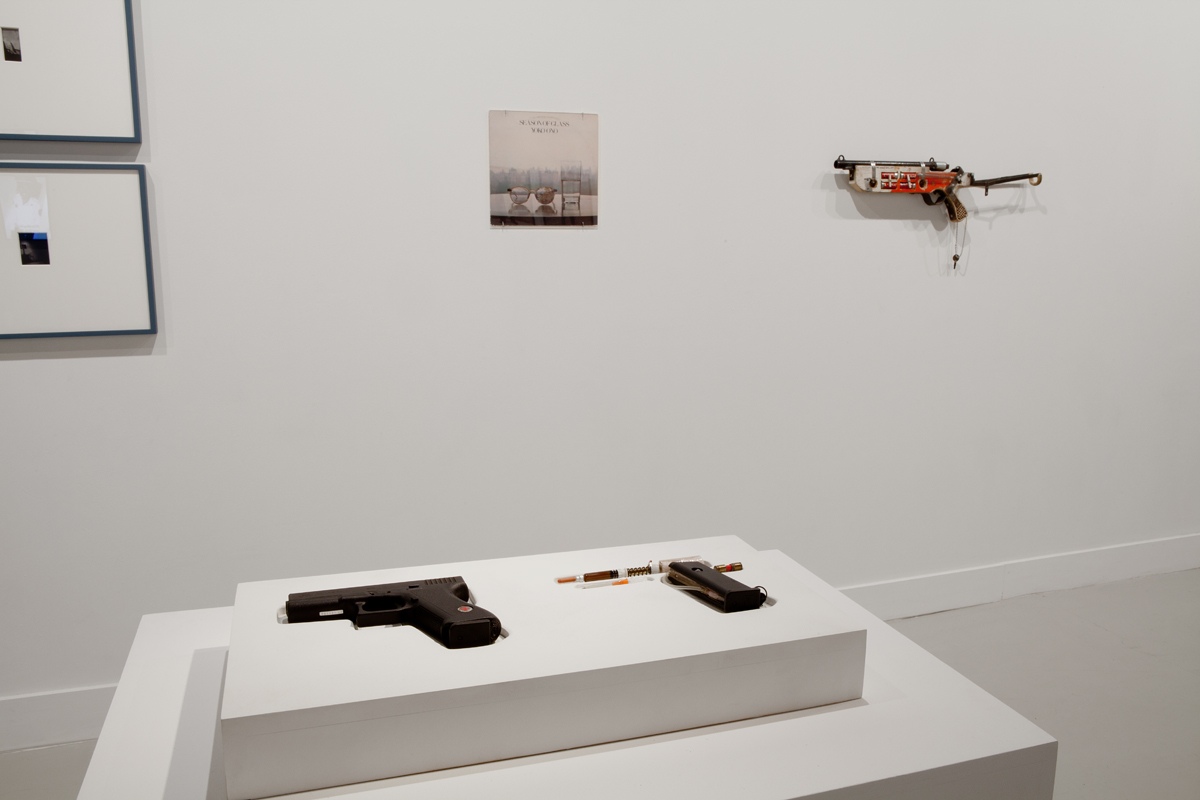
Installation view, “No Bingo for Felons,” Arcadia University Art Gallery, Glenside, Pa., 2013. Photo Credit: Heather Rasmussen.
Panel Discussion
August 28, 2013
Richard Torchia, gallery director, will moderate a discussion with photo-historian Luc Sante and exhibition co-curators Julian Hoeber and Alix Lambert in the Commons Great Room at 6:30 PM. A reception with light refreshment will be held at the gallery immediately afterward. Both events are free and open to the public.
Luc Sante is a writer based in Ulster County, New York. Celebrated by New Yorker art critic Peter Schjeldahlas “One of the handful of living masters of American language as well as a singular historian and philosopher of American experience,” his writing has frequently addressed photography and the vernacular. His books include Low Life: Lures and Snares of Old New York (1991), The Factory of Facts(1998), and Kill All Your Darlings: Pieces 1990–2005 (2007), a collection of essays and articles, many of which first appeared in the New York Review of Books and the Village Voice among other publications.Folk Photography: The American Real-Photo Postcard 1905-1930 (2009) explored the impact of photographs taken with the first pocket cameras and printed in small editions as postcards. A new project entitled, “Further Evidence”, a follow up to Sante’s 1992 publication Evidence: NYPD Crime Scene Photographs: 1914-1918, is the source of the four anonymous photographs included in “No Bingo for Felons”. Sante has translated and edited Félix Fénéon’s Novels in Three Lines. He is the recipient of a Whiting Writer’s Award, an Award in Literature from the American Academy of Arts and Letters, an Infinity Award from the International Center of Photography, a Grammy (for album notes), and Guggenheim and Cullman fellowships. Sante teaches writing and the history of photography at Bard College and is currently completing a book about working-class Paris, its history and culture.
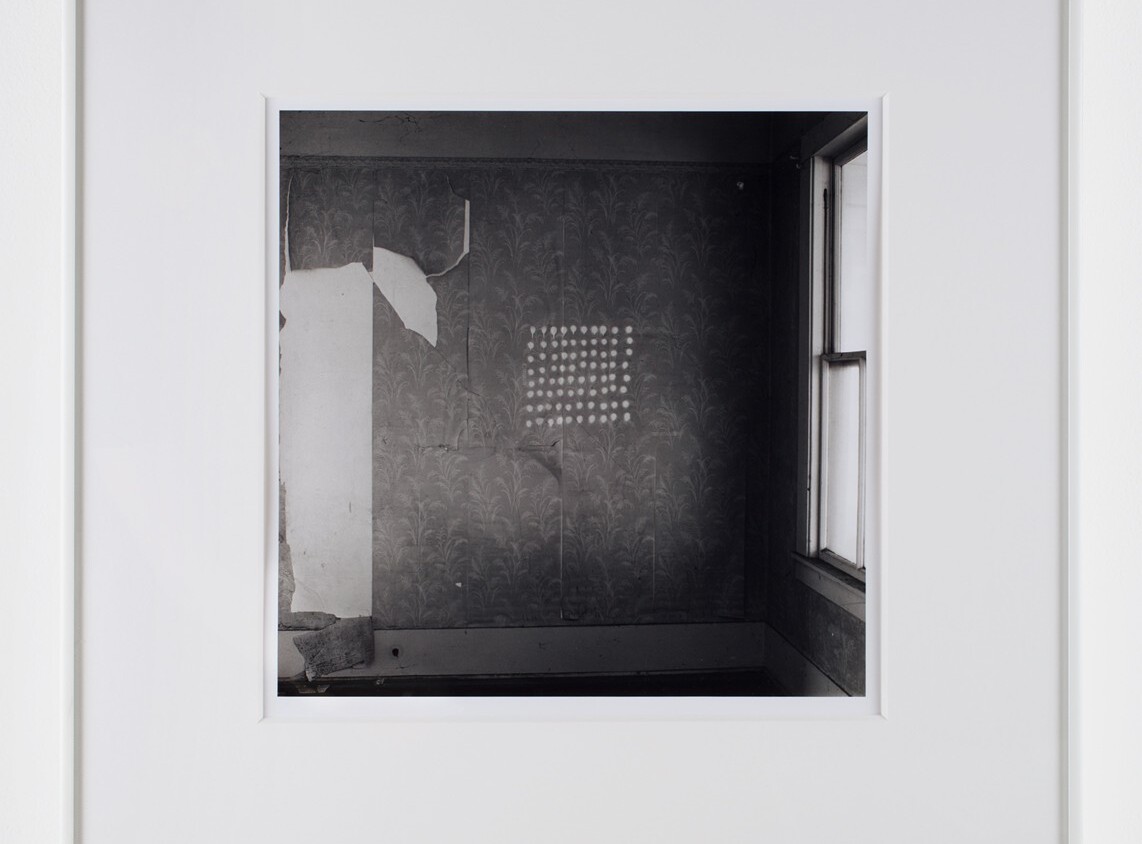
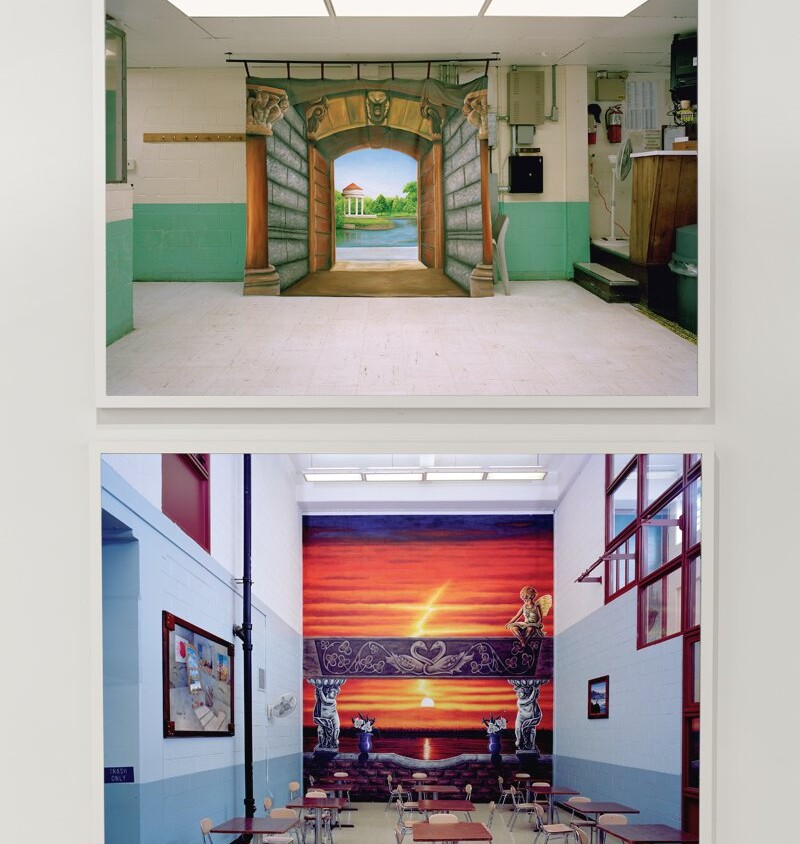
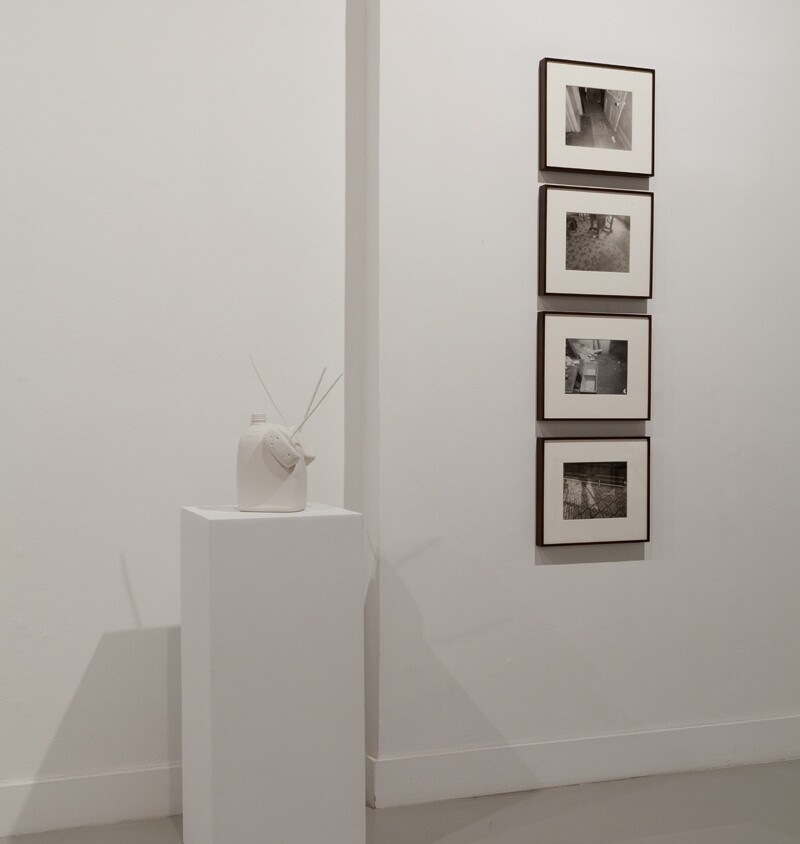
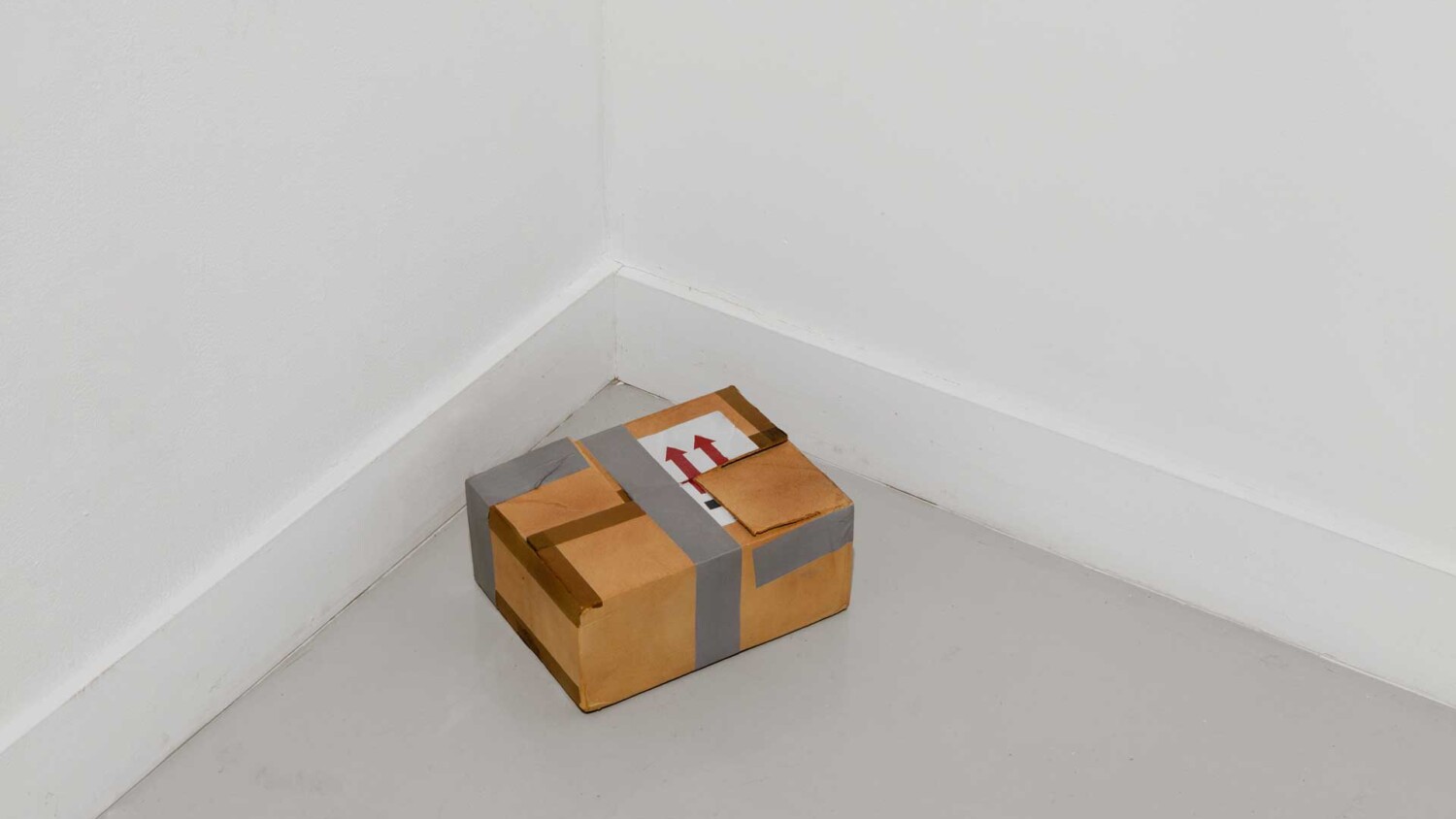




Installation view, “No Bingo for Felons,” Arcadia University Art Gallery, Glenside, Pa., 2013. Photo Credit: Heather Rasmussen.
Installation view, “No Bingo for Felons,” Arcadia University Art Gallery, Glenside, Pa., 2013. Photo Credit: Heather Rasmussen.
Installation view, “No Bingo for Felons,” Arcadia University Art Gallery, Glenside, Pa., 2013. Photo Credit: Heather Rasmussen.
Instalation View, "No Bingo for Felons", Arcadia University Art Gallery, photo: Greenhouse Media
Installation view, “No Bingo for Felons,” Arcadia University Art Gallery, Glenside, Pa., 2013. Photo Credit: Heather Rasmussen.
Installation view, “No Bingo for Felons,” Arcadia University Art Gallery, Glenside, Pa., 2013. Photo Credit: Heather Rasmussen.
Installation view, “No Bingo for Felons,” Arcadia University Art Gallery, Glenside, Pa., 2013. Photo Credit: Heather Rasmussen.
Instalation View, "No Bingo for Felons", Arcadia University Art Gallery, photo: Greenhouse Media

